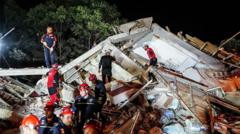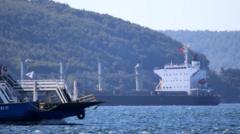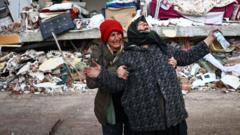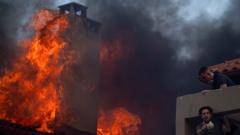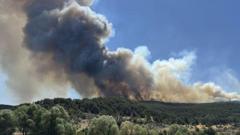In a historic turning point, the Kurdistan Workers’ Party (P.K.K.) declared on Monday its intention to cease armed hostilities against the Turkish state, marking an end to a bloody insurgency that has lasted over 40 years. This momentous announcement follows a call from Abdullah Ocalan, the group’s imprisoned leader, urging his followers to disarm and dissolve their militant activities. The ramifications of this decision could significantly alter Turkey's political landscape and have ripple effects throughout the region.
Kurdistan Workers’ Party Announces End to Armed Insurgency Against Turkey

Kurdistan Workers’ Party Announces End to Armed Insurgency Against Turkey
The P.K.K.'s decision to disband comes after decades of conflict and may signal a shift in regional politics.
The P.K.K. initially sought an independent state for Turkey's Kurdish population, which represents approximately 15 percent of the country's demographic, but has progressively shifted its focus towards advocating for Kurdish rights within Turkey. Throughout the decades of conflict, which has resulted in more than 40,000 fatalities, various attacks have been launched against military and civilian targets, and the Turkish state has responded with robust military operations aimed at quelling the insurgency. The P.K.K. is classified as a terrorist organization by Turkey, the United States, and several other nations.
The implications of disbandment are crucial, raising questions that include: What does the cessation of violence mean for Turkey's policies? How will it alter the dynamics among Kurdish communities? And what could this mean for future peace initiatives in the region?
As this development unfolds, understanding the historical context of the conflict, the identity of the Kurds, and the complexities surrounding previous peace efforts becomes increasingly important, painting a clearer picture of the potential changes on the horizon.
The implications of disbandment are crucial, raising questions that include: What does the cessation of violence mean for Turkey's policies? How will it alter the dynamics among Kurdish communities? And what could this mean for future peace initiatives in the region?
As this development unfolds, understanding the historical context of the conflict, the identity of the Kurds, and the complexities surrounding previous peace efforts becomes increasingly important, painting a clearer picture of the potential changes on the horizon.






